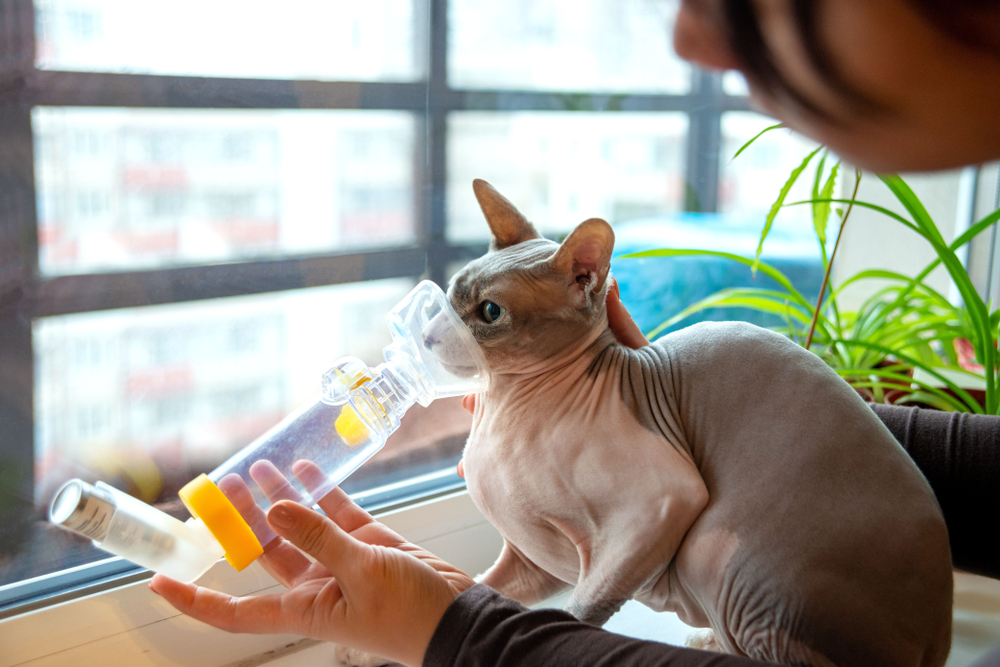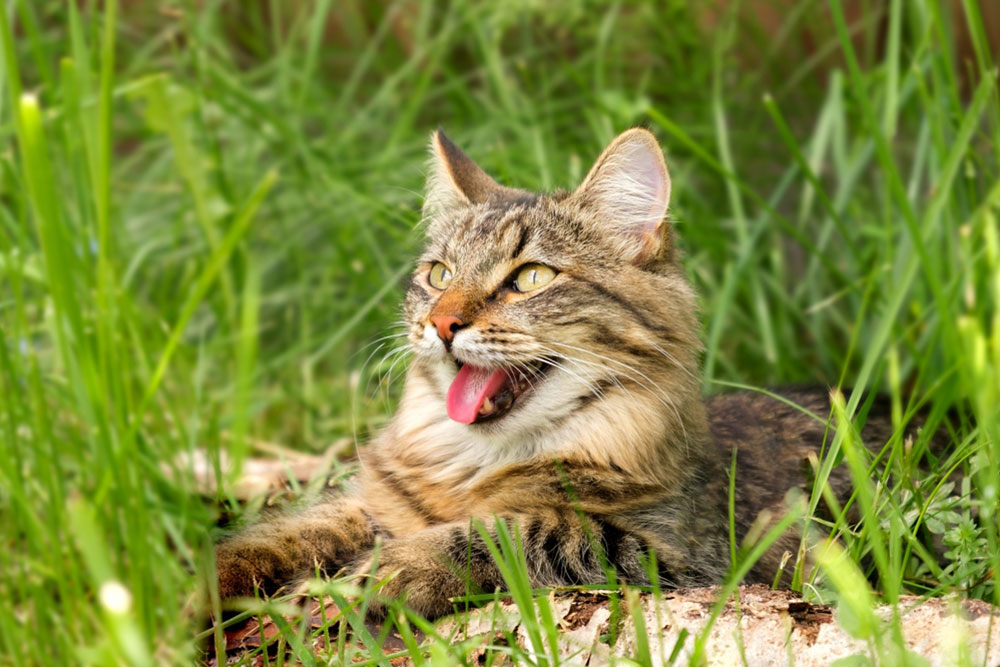Helping Your Kitty Breathe Better: Feline Asthma Tips from Wales Animal Clinic
Feline asthma is a common respiratory condition in cats, akin to human asthma in its causes, symptoms, and management. This chronic condition, characterized by inflammation of the airways, can significantly affect your cat’s quality of life. At Wellness Animal Hospital, our team is here to provide expert guidance and care to help you manage your cat’s respiratory health. Let’s explore everything you need to know about feline asthma, from its symptoms to treatment and prevention.
What is Feline Asthma?
Feline asthma involves persistent inflammation of the airways, which can cause narrowing and swelling, making breathing difficult for your cat. Common triggers include allergens like pollen, dust, mold, smoke, or even strong odors from household products. Over time, unmanaged asthma can lead to irreversible changes in the airways, emphasizing the importance of early intervention.
While any cat can develop asthma, certain breeds, such as Siamese cats, may have a genetic predisposition. Typically, cats between the ages of two and eight are most commonly diagnosed.
Key Points to Remember:
- Chronic Inflammation: Leads to difficulty breathing.
- Common Triggers: Pollen, smoke, dust, and strong odors.
- Potential for Long-Term Damage: Early treatment is crucial.
For more on allergens and their effects on your pets, check out our Allergy Guide.
Recognizing the Symptoms of Feline Asthma
Identifying the signs of feline asthma early can make a significant difference in your cat’s health. Symptoms can range from mild to severe and may occur intermittently or suddenly.
Common Symptoms:
- Coughing: Often dry and hacking, it might resemble a cat trying to clear their throat.
- Wheezing: High-pitched sounds during breathing, particularly noticeable after physical activity.
- Difficulty Breathing: Watch for rapid or shallow breaths, or increased effort in breathing.
- Behavioral Changes: Your cat may avoid play or appear anxious due to breathing difficulties.
If you observe any of these symptoms, especially if they worsen over time, it’s critical to seek veterinary care immediately. Asthma attacks can escalate rapidly and may become life-threatening.
Diagnosing Feline Asthma
A proper diagnosis involves a multi-step process, ensuring accurate identification of the condition and ruling out other respiratory issues.
Diagnostic Steps:
- Comprehensive Examination: Our veterinarians will evaluate your cat’s overall health and respiratory system.
- Medical History: Sharing details about your cat’s symptoms, environment, and potential exposure to allergens can aid in diagnosis.
- Imaging Tools: Chest x-rays are often used to assess the lungs and airways, and in some cases, a bronchoscopy may be performed by a specialist.
For more information on our diagnostic capabilities, visit our Diagnostics page.
Treatment Options for Feline Asthma
Treatment plans for feline asthma focus on reducing inflammation, managing symptoms, and improving your cat’s overall quality of life.
Common Treatments:
- Corticosteroids: These medications help reduce inflammation in the airways and are often administered via inhalers or oral tablets.
- Bronchodilators: Used to relax and open the airways, these medications can quickly alleviate breathing difficulties.
- Allergen Management: Identifying and reducing exposure to environmental triggers is essential.
Your veterinarian will create a tailored treatment plan based on your cat’s specific needs, ensuring their comfort and health.
Managing Feline Asthma at Home
Creating a cat-friendly environment plays a vital role in managing asthma. Here are some practical steps to take at home:
Tips for a Safer Environment:
- Control Allergens: Regularly vacuum and dust your home to reduce allergens. Using HEPA air filters can also help improve air quality.
- Avoid Smoke: Ensure your home remains smoke-free, as smoke is a significant irritant for cats with asthma.
- Choose Unscented Products: Opt for unscented litter and avoid strong cleaning products that may trigger symptoms.
- Monitor and Record Symptoms: Keep a diary of your cat’s symptoms to share with your veterinarian during check-ups.
What to Do in an Asthma Emergency
Asthma emergencies can be frightening for both you and your cat. Signs of a severe asthma attack include open-mouth breathing, bluish gums (a sign of oxygen deprivation), and extreme lethargy.
Emergency Tips:
- Stay calm to avoid further stressing your cat.
- Contact your veterinarian immediately for guidance.
- Avoid handling your cat unnecessarily, as stress can worsen the attack.
Having an emergency plan in place with your veterinarian is a lifesaving measure for cats with asthma.
Preventing Asthma Flare-Ups
Although asthma cannot always be prevented, minimizing exposure to triggers and maintaining routine veterinary check-ups can help manage the condition effectively.

Prevention Strategies:
- Schedule regular health assessments to catch early signs of respiratory issues.
- Maintain a clean and allergen-free environment.
- Be mindful of seasonal changes that may worsen asthma symptoms, such as increased pollen in spring.
Why Wellness Animal Hospital?
At Wellness Animal Hospital, we pride ourselves on delivering compassionate care backed by advanced diagnostic and treatment options. Our experienced veterinary team understands the unique needs of cats with asthma and will work with you to create a personalized care plan.
Frequently Asked Questions
How can I tell if my cat is having an asthma attack?
Look for signs such as wheezing, coughing, rapid breathing, or lethargy. If symptoms worsen suddenly, seek veterinary care immediately.
What should I do during an asthma attack?
Remain calm and call your veterinarian. Avoid excessive handling, as stress can exacerbate the attack.
Can a cat’s diet influence asthma?
While diet may not directly cause asthma, a balanced diet supports overall health and a strong immune system. Discuss dietary options with your veterinarian.
By staying informed and proactive, you can help your cat live a comfortable and healthy life despite their asthma. At Wellness Animal Hospital, we are committed to being your trusted partner in your pet’s health journey.
For any concerns or questions about feline asthma, don’t hesitate to contact us. Together, we can ensure your cat’s well-being.







Leave A Comment